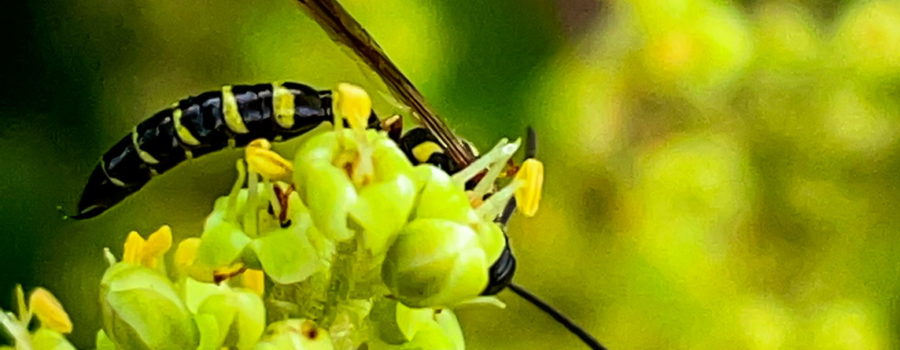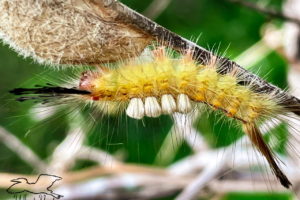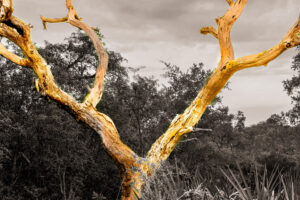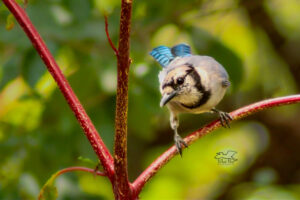The Beautiful Five Banded Thynnid Wasp is Great for Gardens!

One of the things that we don’t lack for down here in Florida are wasps. Fortunately, most of our wasps are nonaggressive and usually don’t sting or bother people unless provoked. I have already introduced you to a few of those including the common paper wasp and the organ pipe wasp. Not long ago when I was on one of my walks on the state forest land by my house I came on this bush that was literally buzzing with wasps and bees. The ends of the branches were covered in hundreds of small flowers and they must have been in their prime because there were pollinators everywhere! I was snapping photos of all sorts of interesting insects including bees, wasps, butterflies, beetles, moths and more. It was an insect photographer’s delight! I must have spent over an hour, just wandering around that one bush. Every time I thought I had pictures of everything there I would spot something new. Needless to say, that bush was the highlight of that walk. I went back a few days later, and you could see that the flowers were already starting to go by, and there were a few insects still there, but the vast majority had moved on. I lucked out by deciding to take that walk that afternoon!

One of the smaller wasps that I encountered on the trip was one I wasn’t familiar with. They were only about a third of the size of most of the others there that day, but there were quite a few of them, and they were quick and kind of shy. I ended up with several lovely shots of the flowers with no wasp at all and several more of just rear ends. Sigh! But with some of the better images it was easy to identify them in PictureInsect as five banded thynnid wasps (Myzinum quinquecinctum). They are a type of flower wasp, which certainly seemed an appropriate classification to me. They are in the same family of wasps as yellow jackets, but unlike yellow jackets they are not aggressive and actually the males are unable to sting at all. In place of their stingers they have a small hook, that I could easily see in some of those rear end shots. Five banded thynnid wasps are fairly common wasps in the United States and Canada east of the Rocky Mountains. It actually surprised me when I realized how common they were that I hadn’t noticed any before. From now on I’ll have to be more observant.

Five banded thynnid wasps are solitary wasps that don’t build nests, but rather lay their eggs, one at a time, on beetle larvae in the ground. When the wasp larva hatches out it will parasitize the beetle larva, first feeding on nonessential tissues, and eventually feeding on essential tissues and killing the beetle larva. The larval wasp spends the winter months doing this down in the ground or in fallen trees and leaf debris so that when the weather warms it is ready to emerge as an adult wasp. As adults they feed on nectar, aphid honeydew, and other sweet substances (they can be attracted to hummingbird feeders or open sugary drinks and become pests if there are a lot of them in the area). By feeding on nectar they are good pollinators, and by feeding on beetle larvae they are helpful to gardeners by keeping beetle populations in check.

All of the photos that I got on my walk were of males, and even though they are solitary wasps, it is not uncommon to find males in groups around a food source or on low plant leaves in the early morning. The males of this species tend to be thinner than their female counterparts, and the females have wider bands on their abdomens. Females also possess a true stinger that they can use in self defense, but is mainly used to help in laying eggs. Females spend most of their time on the ground, and some species in the family are actually wingless! It’s getting a bit late in the year now, but next summer I plan to keep a closer eye on some of the downed trees along my walking routes and see if I can’t find some females, too. Wish me luck!
If you enjoy beautiful and interesting nature photography and artwork along with informative and entertaining content, then you will love this blog! Please subscribe below and join our family!





Recent Comments